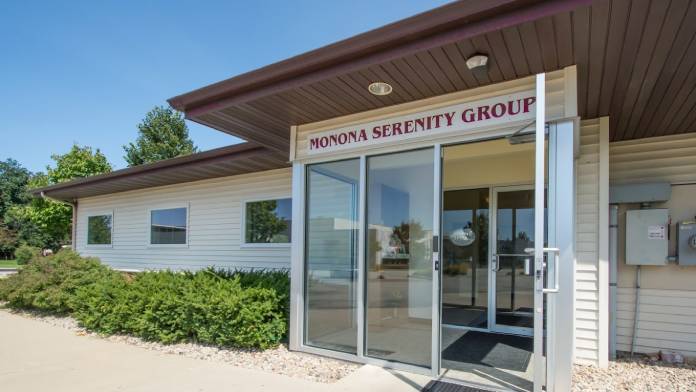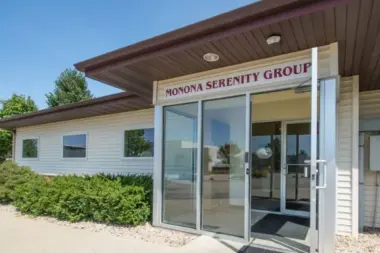A great group to go to if you need help. They will welcome you and offer you a new community.
About Monona Serenity Group
Monona Serenity Group is located in Madison, Wisconsin. This is a nonprofit organization created to provide a safe space for individuals recovering from substance use disorders where they can come together and find fellowship and unity while navigating the road to recovery.
Their services are also available to families and friends, offering loved ones a place to turn to where they can learn how to best support you in your time of need. You can participate in their programming during regularly scheduled meetings, though there is a nominal fee that members are expected to pay.
Safe Recovery Environment
The Monona Serenity Group building is located just east of the heart of Madison, right across from beautiful Lake Monona. Public transportation services run nearby, making it easy for you to access the facility even without reliable private transportation.
The facility is modern, clean and offers an open, inviting space where regular AA, NA and other 12 Step meetings take place. Whether it’s your first time joining such a meeting or you’ve been involved in other community meetings in the past, you will be welcomed here with open arms.
Regularly Scheduled Events
Throughout the month, they host various events. For example, on the last Thursday of every month, Monona Serenity Group holds a potluck where a special guest speaker provides insight on specific recovery topics.
Building Fellowship
While this facility primarily hosts community group meetings, it’s also a great way to build connections with other peers in recovery. Tapping into this community helps reinforce that you’re not alone in your struggles, which can inspire, motivate and encourage you to stay on your recovery path. Most importantly, when facing challenges in recovery, this support group provides a network of people who can lift you up when you’re down.
Latest Reviews
Rehab Score
Gallery


Other Forms of Payment
Self-pay involves paying for treatment out of your own pocket. You can use savings or credit, get a personal loan, or receive help from family and friends to fund your treatment. If you don't have insurance or your insurance plan doesn't cover a specific program, self-pay can help ensure you still get the care you need.
Addiction Treatments
Levels of Care
Outpatient Programs (OP) are for those seeking mental rehab or drug rehab, but who also stay at home every night. The main difference between outpatient treatment (OP) and intensive outpatient treatment (IOP) lies in the amount of hours the patient spends at the facility. Most of the time an outpatient program is designed for someone who has completed an inpatient stay and is looking to continue their growth in recovery. Outpatient is not meant to be the starting point, it is commonly referred to as aftercare.
12-step programs are addiction recovery models based on Alcoholics Anonymous (AA). A number of substance abuse programs (including some drug and alcohol rehab centers) use the 12 steps as a basis for treatment. Beginning steps involve admitting powerlessness over the addiction and creating a spiritual basis for recovery. Middle steps including making direct amends to those who've been hurt by the addiction, and the final step is to assist others in addiction recovery in the same way. 12-Step offshoots including Narcotics Anonymous (NA), Cocaine Anonymous (CA), Dual Recovery Anonymous (DRA), Sex and Love Addicts Anonymous (SLAA) and Gamblers Anonymous (GA).
Treatments
The goal of treatment for alcoholism is abstinence. Those with poor social support, poor motivation, or psychiatric disorders tend to relapse within a few years of treatment. For these people, success is measured by longer periods of abstinence, reduced use of alcohol, better health, and improved social functioning. Recovery and Maintenance are usually based on 12 step programs and AA meetings.
The goal of drug rehab in Wisconsin is to address drug addiction as a complex issue that involves physical, mental, and relational aspects. During rehab, treatment focuses on each of these areas and gives you the tools you need to achieve and maintain sobriety.
A combined mental health and substance abuse rehab has the staff and resources available to handle individuals with both mental health and substance abuse issues. It can be challenging to determine where a specific symptom stems from (a mental health issue or an issue related to substance abuse), so mental health and substance abuse professionals are helpful in detangling symptoms and keeping treatment on track.
Programs
Adult rehab programs include therapies tailored to each client's specific needs, goals, and recovery progress. They are tailored to the specific challenges adult clients may face, including family and work pressures and commitments. From inpatient and residential treatment to various levels of outpatient services, there are many options available. Some facilities also help adults work through co-occurring conditions, like anxiety, that can accompany addiction.
Young adulthood can be an exciting, yet difficult, time of transition. Individuals in their late teens to mid-20s face unique stressors related to school, jobs, families, and social circles, which can lead to a rise in substance use. Rehab centers with dedicated young adult programs will include activities and amenities that cater to this age group, with an emphasis on specialized counseling, peer socialization, and ongoing aftercare.
Clinical Services
Group therapy is any therapeutic work that happens in a group (not one-on-one). There are a number of different group therapy modalities, including support groups, experiential therapy, psycho-education, and more. Group therapy involves treatment as well as processing interaction between group members.
Amenities
-
Residential Setting
-
Private Setting
Contact Information
4933 Prairie Dock Drive
Madison, WI 53718